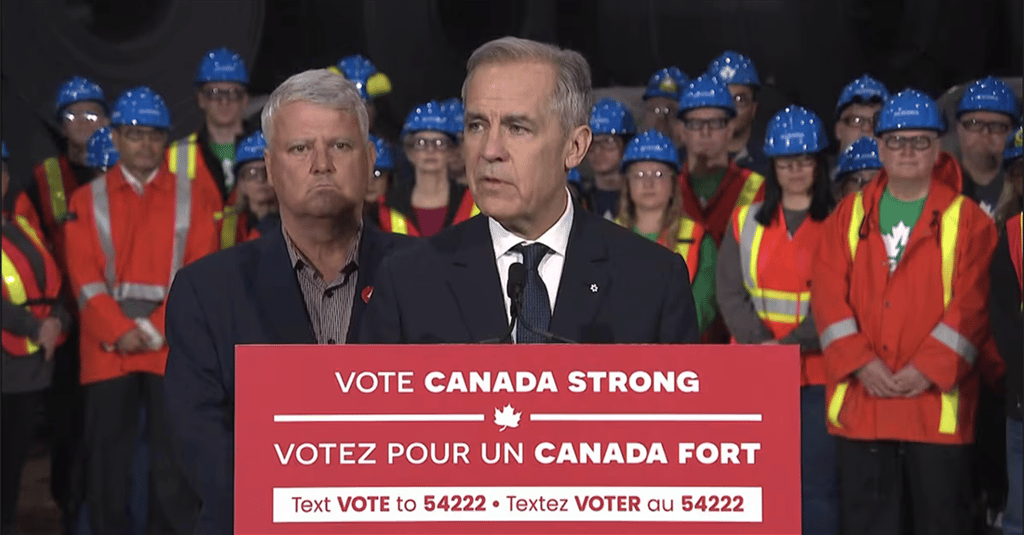Will Canada Stand Strong Against Trump’s Trade Threats? Carney’s Bold Response
4/28/20254 min read


Will Canada Stand Strong Against Trump’s Trade Threats? Carney’s Bold Response
In the high-stakes chess game of international relations, Canada’s Prime Minister Mark Carney is facing a formidable opponent: U.S. President Donald Trump. With the Canadian federal Election Day on April 28, 2025, looming, accusations of dishonesty from Trump have thrust Carney into the spotlight. The former central banker is pushing back, framing the U.S. as a bully trying to “break” Canada. But can Carney rally Canadians and secure the nation’s sovereignty in the face of escalating trade threats? Let’s unpack this gripping drama.
The Accusation That Sparked a Firestorm
It all started with a March 28, 2025, phone call between Carney and Trump. The leaders agreed to launch negotiations on a new economic and security partnership between Canada and the U.S. after the Canadian election. Simple enough, right? Not according to Trump, who accused Carney of misrepresenting their conversation, hinting at dishonesty. Trump even floated the provocative idea of Canada becoming the “51st state”—a notion Carney dismissed as rhetorical bluster.
Carney didn’t mince words in his response. Speaking at a campaign event, he clarified that both leaders reported the same outcome: a mutual commitment to nation-to-nation talks as sovereign equals. “It will never happen,” Carney said of the 51st-state idea, emphasizing Canada’s independence. He accused Trump of using fear tactics to dominate Canada’s resources, land, and economy. This wasn’t just a defense—it was a call to arms for Canadians to choose a leader who can stand up to the U.S.
Trump’s Tariff Threats: A Looming Crisis
The backdrop to this spat is Trump’s aggressive trade agenda. He’s threatened 25% tariffs on Canadian goods unless Canada halts the flow of migrants and drugs across the border—a demand critics call a pretext for economic coercion. These tariffs could devastate Canada’s economy, which relies on the U.S. for 75% of its exports. The stakes are sky-high, and Carney knows it.
Carney has framed the U.S. as a predator seeking to “hold us” and exploit Canada’s vulnerabilities. His campaign rhetoric paints a vivid picture: a united Canada standing firm against American intimidation. He’s pitching himself as the seasoned crisis manager—former Bank of England governor, architect of global financial reforms—who can navigate these choppy waters. But with Trump’s unpredictable style, is experience enough?
Carney’s Plan to Fight Back
Carney isn’t just talking tough; he’s got a playbook. His platform includes a $5 billion trade diversification fund to reduce Canada’s dependence on the U.S. by boosting ties with Europe and Asia. He’s also pledged to ramp up military spending to meet NATO’s 2% GDP target, signaling a stronger, more assertive Canada. These moves aim to fortify the economy and project resilience, but they’re not without risks. Diversifying trade takes time, and new military commitments could strain budgets.
Carney’s vision hinges on unity. “What’s at stake in this election is how well we come together as a country,” he said, urging Canadians to back a leader who can handle “difficult discussions” with the Americans. It’s a compelling narrative, but not everyone’s buying it.
The Critics Weigh In
Opposition leaders are seizing on the moment. NDP Leader Jagmeet Singh has questioned Carney’s transparency, suggesting he’s not leveling with Canadians about the full scope of the Trump talks. Bloc Québécois Leader Yves-François Blanchet has gone further, warning that Carney’s globalist background might make him too conciliatory in negotiations. These critiques tap into a broader unease: can Carney, a figure associated with elite institutions, truly embody the gritty resolve needed to face Trump?
Public sentiment is mixed. Posts on X reflect frustration with Trump’s threats but also skepticism about Carney’s ability to deliver. One user wrote, “Carney talks a big game, but will he fold under pressure?” Another countered, “We need someone like Carney who’s been in the trenches, not a populist shouting into the void.” The election’s outcome will hinge on which narrative Canadians embrace.
A Defining Moment for Canada
As the election nears, Carney’s clash with Trump is more than a diplomatic spat—it’s a test of Canada’s resolve. The U.S. remains Canada’s largest trading partner, but Trump’s tariffs could disrupt supply chains, raise prices, and cripple industries like automotive and energy. Carney’s promise of “proper negotiations” and a united front is appealing, but the road ahead is fraught with uncertainty.
This drama underscores a deeper question: how does a smaller nation preserve its sovereignty when its neighbor plays hardball? Carney’s answer is clear—build strength, diversify, and negotiate from a position of unity. But with Trump’s unpredictable tactics and domestic critics circling, the path to victory is anything but certain.
What’s Next?
Carney’s rebuttal to Trump has set the stage for a pivotal election. Will Canadians rally behind his vision of resilience, or will doubts about his leadership tip the scales? As the U.S. looms large, Canada’s future hangs in the balance.
- What do you think? Can Carney outmaneuver Trump in trade talks, or is Canada at risk of being outplayed?
- How much should Canada diversify its trade to reduce U.S. reliance, and at what cost?
- Is Carney’s experience a strength or a liability in this high-stakes moment?
Photo Credit:ctvnews.ca
hello@boncopia.com
+13286036419
© 2025. All rights reserved.